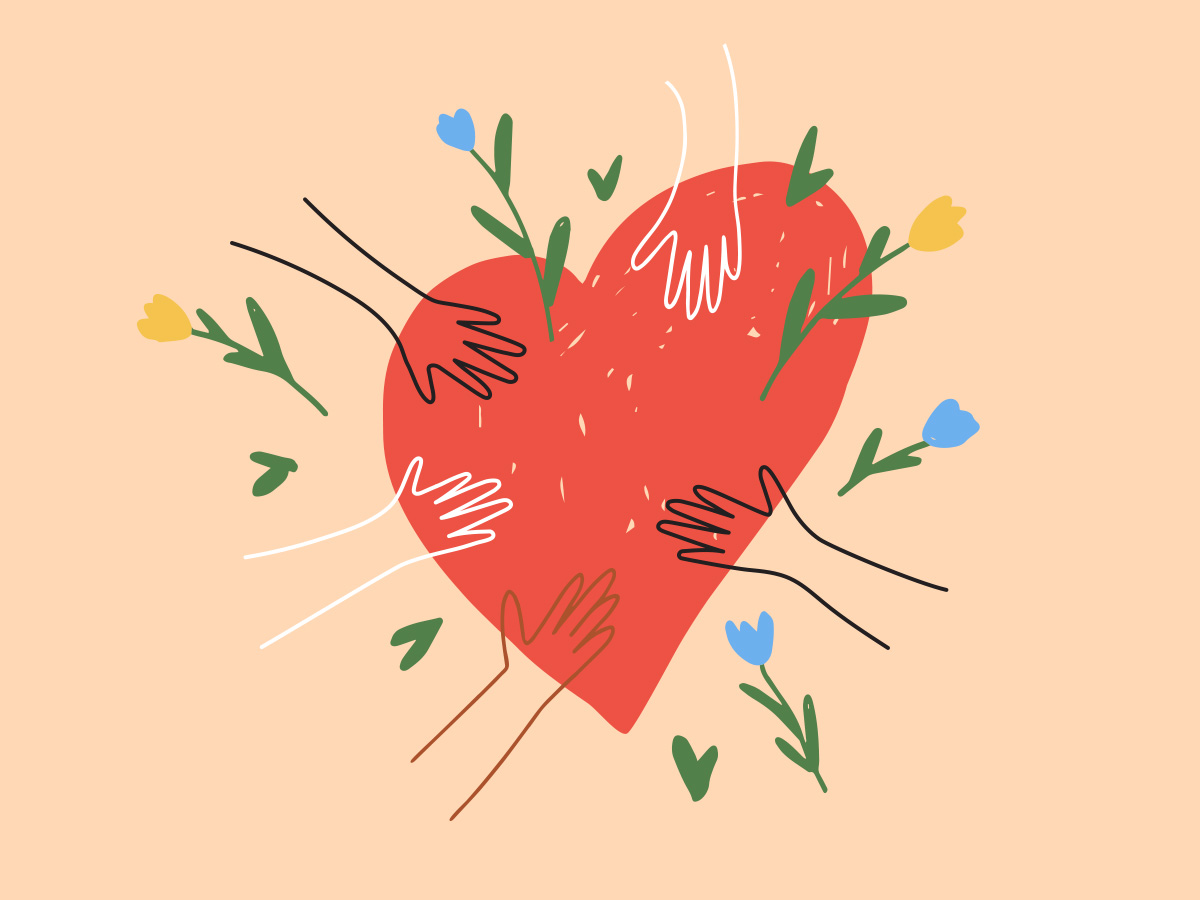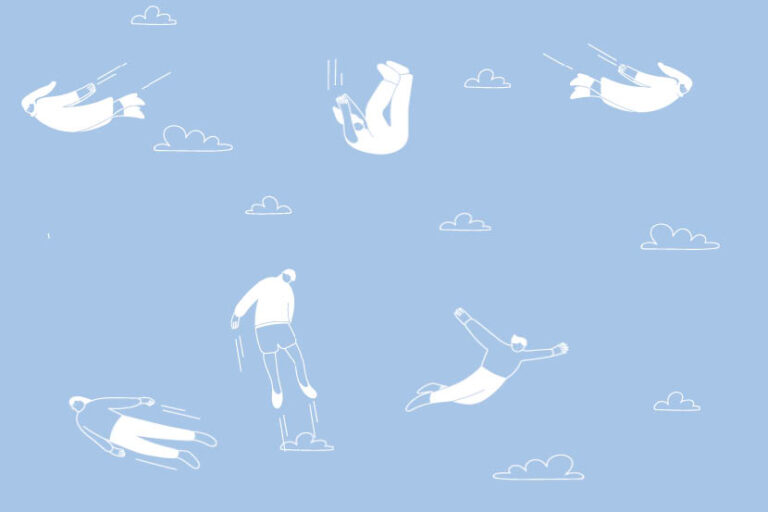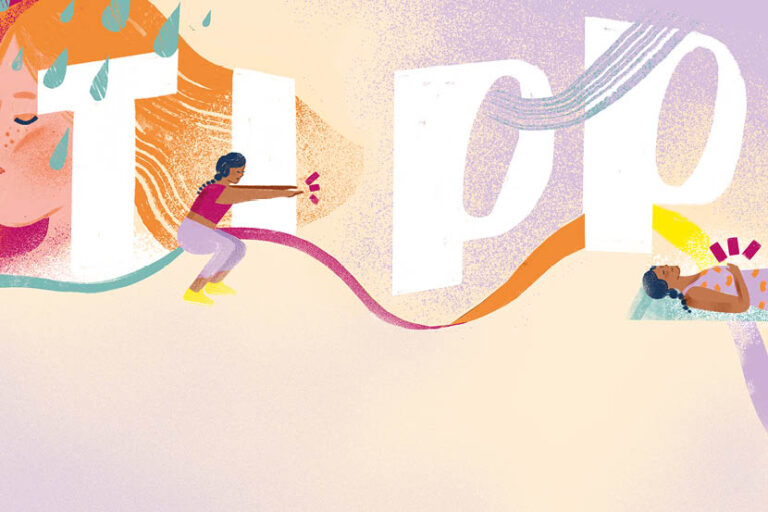
How to cope when others’ unhelpful and destructive emotions are infiltrating your own
A close friend turns to confide in you, heavy with grief, and you feel the tears roll down your own cheeks; your heart is in your mouth as you watch a loved one performing onstage for the first time; you witness an angry exchange in a traffic jam and become worried. The capacity to connect with the emotions of other people is a fundamental human trait, but it’s important to recognise when and how to protect against it.
In his book The Age of Empathy, Dutch primatologist Frans de Waal explains that empathy is a natural behaviour observed in all mammals. ‘Our brains have been designed to blur the line between self and other. It is an ancient neural circuitry that marks every mammal, from mouse to elephant.’
The ability to tune into the needs of our offspring is key to the successful evolution of the mammalian parenting model, enhancing the cohesion, survival, and reproductive capacity of social groups. That’s why it’s so hard to ignore the piercing cry of a baby and why giggles and yawns are so contagious.
Everyone you meet carries a different energy or mood with them. Their posture, facial expression, voice, actions, and words are all fuelled with the force of their current feelings and when you engage with them, you’re exposed to that energy, just as you are to the rays of the sun. That’s all well and good when your partner’s good mood lifts your own, or even when picking up on an air of tension alerts you to a potential threat. But hauling around for too long your best friend’s broken heart, your boss’s stress, or the agitation of the random driver who challenges you at the traffic lights can be wearing.
Add to that the constant pinging of global news on media platforms and there’s the real possibility of being constantly bombarded with a cocktail of emotions from every corner of the world. With so many emotions milling around, it can be difficult to separate which ones are actually yours, leaving you depleted and exhausted.
‘Our societies probably work best if they mimic as closely as possible the small-scale communities of our ancestors,’ writes Frans in another title, Our Inner Ape. ‘We certainly did not evolve to live in cities with millions of people where we bump into strangers everywhere we go, are threatened by them in dark streets, sit next to them on the bus, and give them the finger in traffic jams.’ But if living in an intimate society without Wi-Fi isn’t an option, how do you find emotional equilibrium?
HOW TO SEPARATE YOUR FEELINGS FROM EXTERNAL INFLUENCES
1 Check in regularly
Emotions are fantastic navigational tools. They indicate that something isn’t quite right and identify areas that need attention to steer you in the direction of a happier, more meaningful life. Taking time to regularly check in with yours makes it easier to recognise whether the feelings you experience come from yourself or others.
2 Label feelings that have crept in
Language can separate you from the experience. The simple act of naming the feeling that’s present and the person who’s experiencing it distances you from its external influence. This gives you a position from which to consider your reaction. Identifying uninvited emotions can prevent you from getting sucked into the vortex of another’s anger or despair, which is rarely helpful.
3 Know that some people just want to unload
Do you know someone who is always complaining or seems to find the downside to every situation? Rather than looking to you for answers, they might just be offloading negative emotions, unwittingly leaving them with you. Sometimes, suggesting a solution can enable you to walk away without feeling the need to take their burden with you.
4 Remember that you can only chart your own path
Other people’s emotions can be contagious and, if you catch them, it can be difficult to help yourself or your friends. Get centred in your own feelings and keep a clear head. If a loved one is angry and you start to notice that your temper is rising, take a long, slow breath. Offering help and support is admirable but if you find you’re frequently doing things for people who are capable of looking after themselves, you might unintentionally be doing them a disservice. It’s important to recognise the difference between being supportive and carrying too heavy a load.
5 Be careful about who you allow in
It’s natural, kind, and compassionate to have emotional guests over sometimes. If a friend has suffered a setback at work, a relationship breakdown, a bereavement, or is struggling with their physical or mental health, giving them a safe space to talk is helpful. But if there’s someone in your life whose negative energy is constantly preventing you from achieving the things that you want, then it might be time to rethink the parameters of the relationship.
6 Take good care of your space
Looking after yourself and your needs is not selfish. Make time to do the things that give you a good feeling. From this strong and steady position, you will be in a much better place to care for yourself and others. You might not be able to block out everyone else’s negative emotions, but you can bolster positive ones. If you find yourself hijacked by people’s moods, take time to prepare before getting into anyone’s company. You could note down the things in your life you’re grateful for, centre yourself with a meditation or get the endorphins flowing with exercise.
7 Limit your exposure
Emotions are a physical energy in the body, that’s why they’re called feelings. They exist to fuel action. When you take on issues or problems that you can’t solve, that energy stagnates. It can feel like being stuck or heavy. You might think about limiting the time you spend on social media, reducing the number of accounts you follow, turning off news notifications, and even removing a few of your contacts.


















